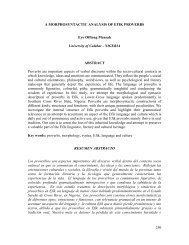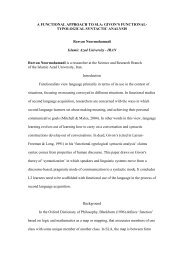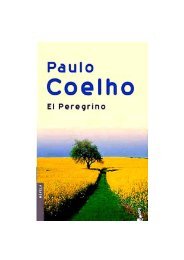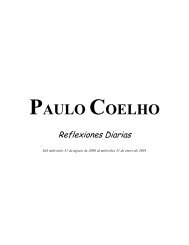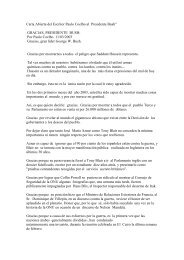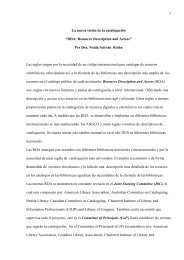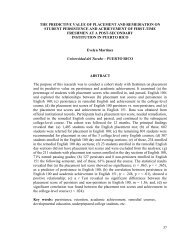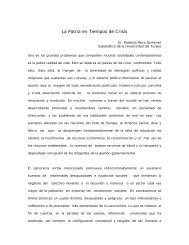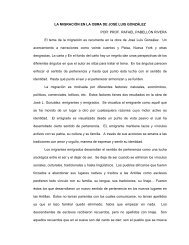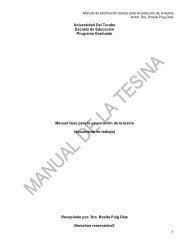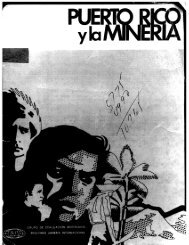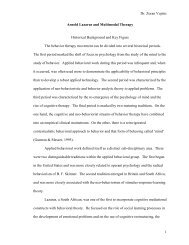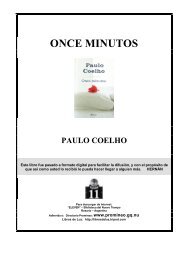Jennet Rodriguez Betancourt
Jennet Rodriguez Betancourt
Jennet Rodriguez Betancourt
You also want an ePaper? Increase the reach of your titles
YUMPU automatically turns print PDFs into web optimized ePapers that Google loves.
estudio, ni patios, ni jardines; comemos como las fieras cada uno en su rincón, y<br />
cuando la miseria y los malos tratamientos acaban de trastornar nuestro juicio<br />
nos encierran en una jaula o nos atan como a perros con un collar y una<br />
cadena.”(Alonso 86)<br />
After much uproar, a Puerto Rican patient respectfully requests that he be<br />
permitted to speak about his country and when he is granted the opportunity, the dream is<br />
interrupted-he (Alonso) is awakened and the reader is left wondering what the Puerto<br />
Rican patient would have said. This was a brilliant way to avoid oppression. First, the<br />
setting is France, not Puerto Rico. The complaints are not from the Criollo because he<br />
was never able to articulate his opinion. Yet, the negative conditions were undoubtedly<br />
exposed and contrasted with the fair and humane ones using fictive characters. Most<br />
importantly, Alonso didn’t assert anything-he didn’t need to; the question to anyone who<br />
knew the island was already answered. Censorship was evaded and between the many<br />
layers, the message was undeniably communicated. The neglect, the injustices, and the<br />
ill-treatment were voiced through the characters of a different race and in another land.<br />
Once again there is a hidden transcript in which what is left unsaid is just as important as<br />
what is.<br />
In Espiritu de provincialism, Scene I, Alonso once more evades censorship using<br />
fictive characters and the literary technique of a story within a story. In this vignette<br />
there is a masked criticism to those who believe that their culture is superior to others.<br />
The author escapes repression by presenting a dialogue between three characters: a<br />
Cuban friend named Pepe, a young arrogant Cuban student (el cubanito), and the<br />
narrator, a Puerto Rican which is perhaps Alonso himself. The cubanito is a student in<br />
14



